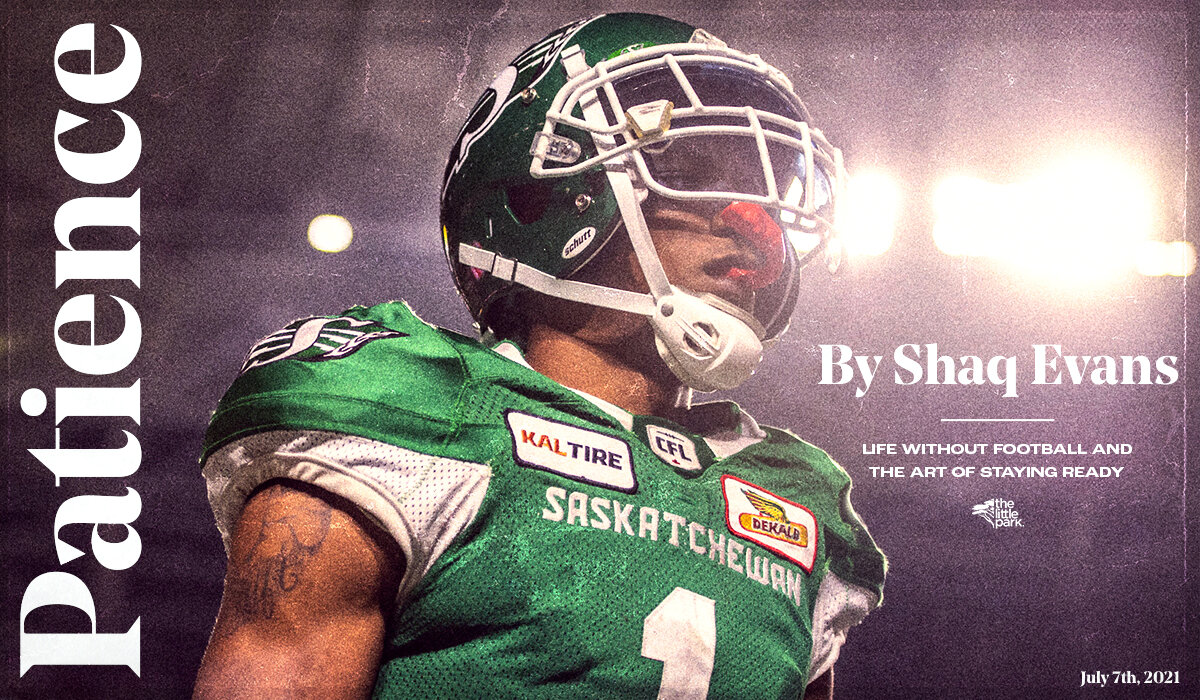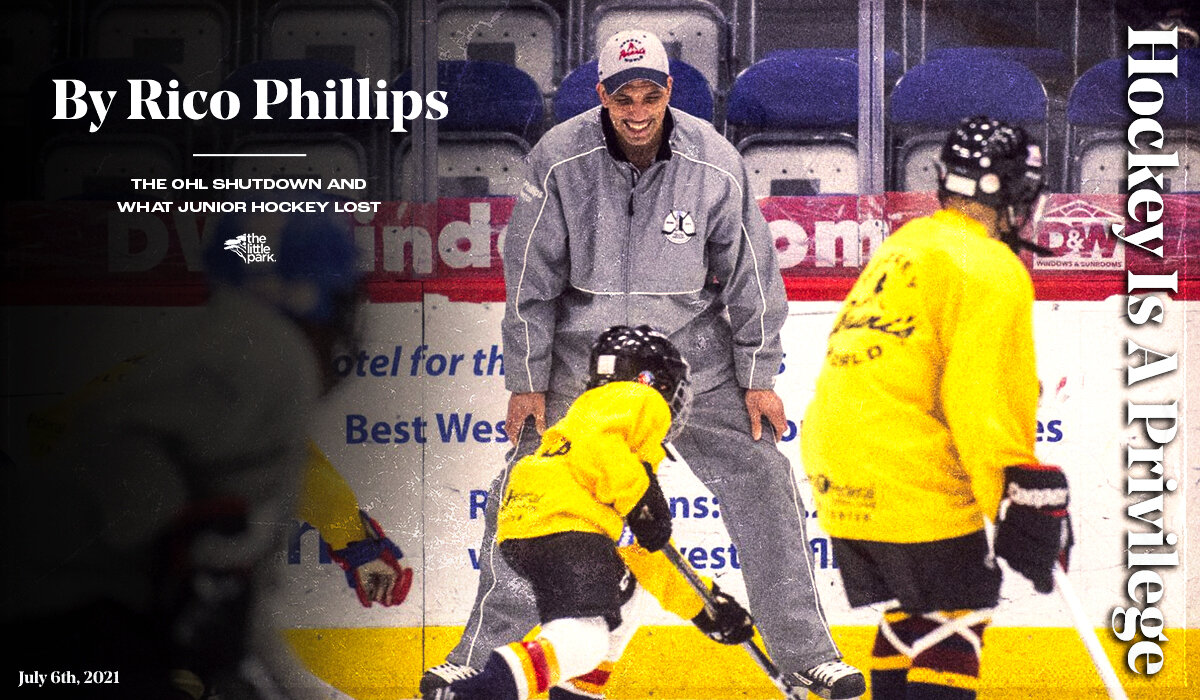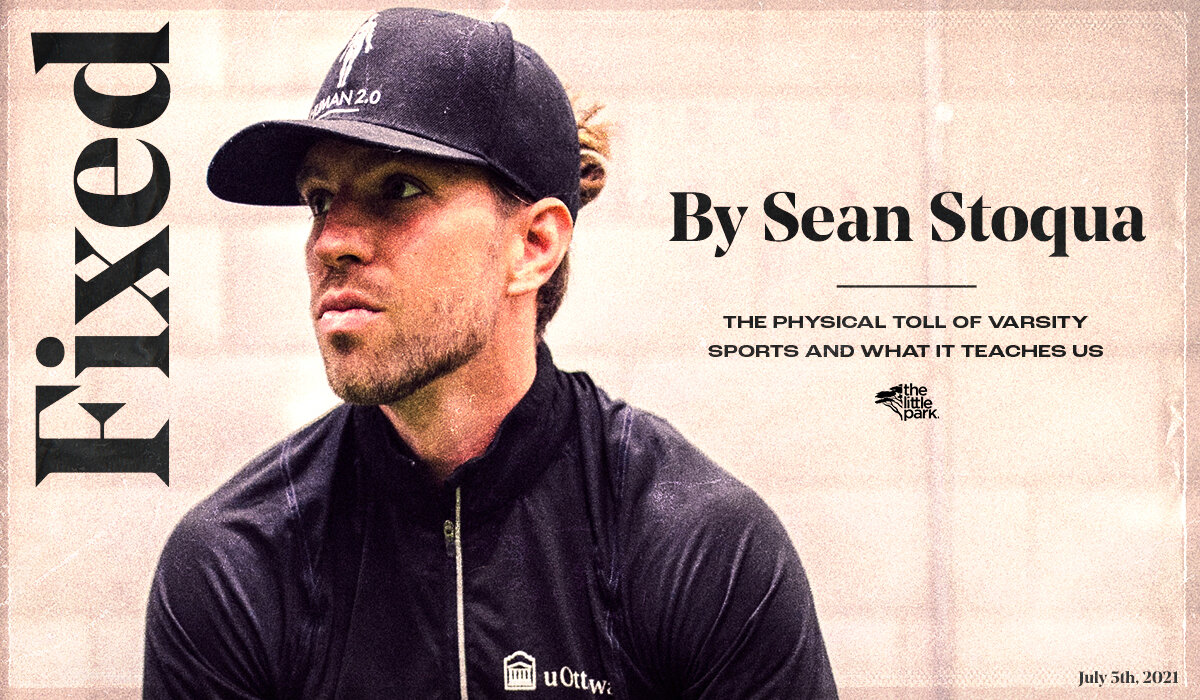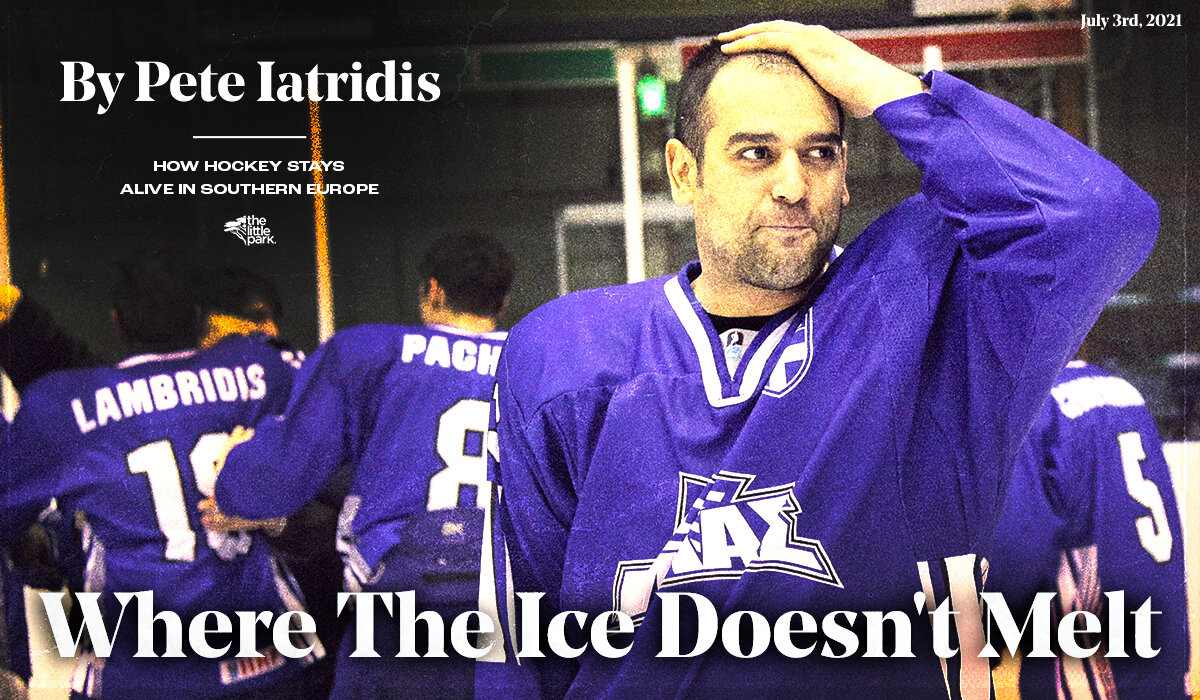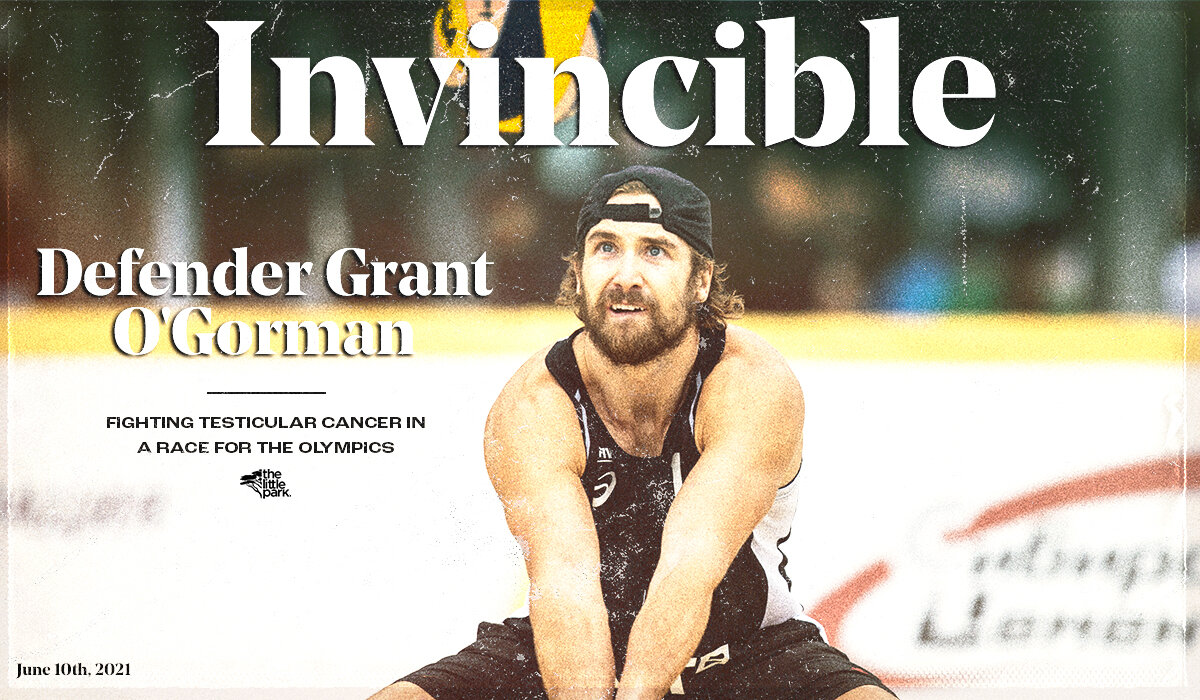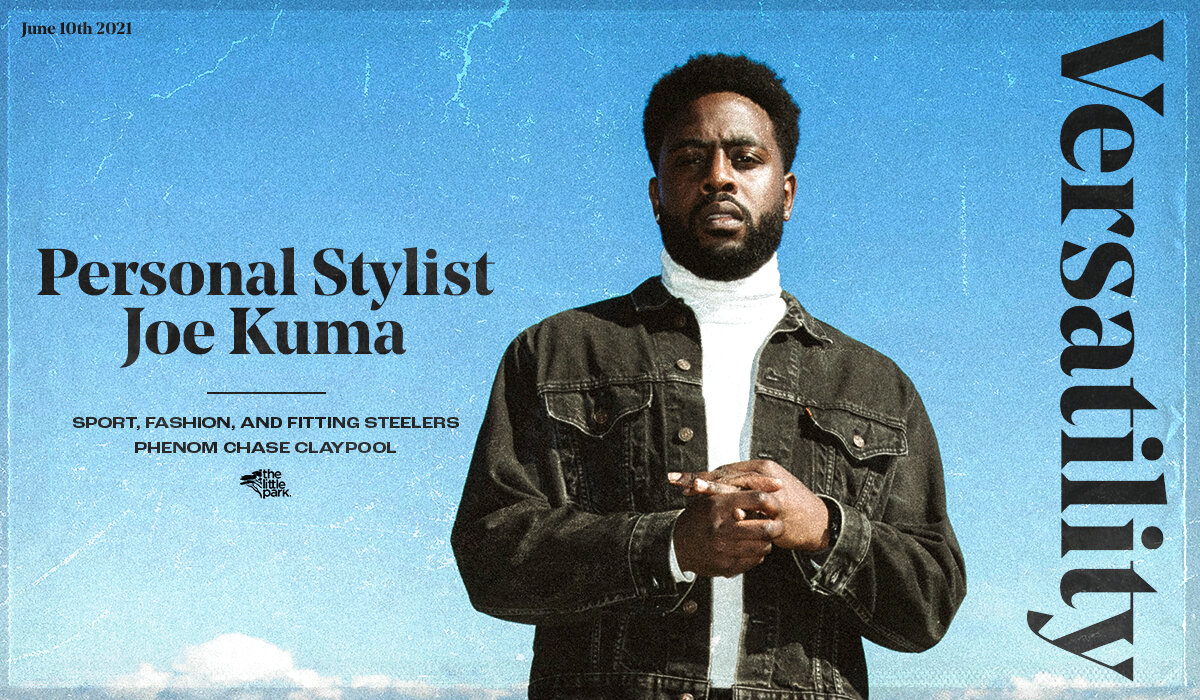I’ve had a competitive mentality instilled in me from an early age. Yes, as an athlete it’s in my nature to compete with others and to want to win. My parents taught me that, in a way, I needed to compete with myself every day. I needed to push myself to be better than I was yesterday, the best version of me that I could be; on and off the ice. I needed to be fearless, stand in my power and fight for what I believe in. My dad is one of eight children, a first-generation immigrant from Trinidad. He and his siblings excelled at sports and, although he was never able to play hockey, believed every Canadian child should know how to swim and skate. I got the swimming lessons over with and then at three years old my dad had me out on our local outdoor rink. I loved skating and it came pretty naturally to me, my parents said that I took off at three and haven’t looked back since. Hockey has brought me so much joy. I’ve built lasting relationships and had incredible opportunities. But the hockey world hasn’t always been a welcoming space and throughout my journey I’ve had countless doubters and haters. My response to everyone has always been through my play. If I wanted to shut them up, I had to beat them on the ice. I probably avoided countless other negative experiences with racism and sexism because I was good enough to let my play do the talking. What I’ve realized is that if you are not a straight, white male, it isn’t good enough to love hockey and just want to play, because you’re constantly under a microscope proving that you should belong.As a biracial female who excelled in hockey, I’ve been afforded this unique lens into racism and sexism. I’ve struggled with being a female in the game, but also being one of the only non-white females in the game. Growing up I was the only one and it’s nice now being able to connect with and have this sisterhood with women like Blake Bolden, Brigette Lacquette and Saroya Tinker.I have always recognized the privilege having lighter skin has afforded me. Whenever there would be a racist comment made, it was always noted that I wasn’t “that black” so I wasn’t allowed to be offended. But when Black History month rolled around all eyes were suddenly on me. Whenever men would tell their sons to pick it up and ‘not to play like a girl’, I was always told not to be offended because I was the exception and that most girls weren’t actually good at hockey. This behaviour is toxic and does not constitute a welcoming space. Hockey is Canada’s game and we know that there is a huge gender inequality, but we have to recognize there’s also racism in both our society and sport. Racism isn’t only someone hurling a racial slur, it’s systemic, it’s micro-aggressions, it’s often covert changing mood, attitude or behaviour towards BIPOC people. Yes, it’s asking a Black hockey player why they didn’t play basketball. In Canada, we often suppress it, passing racism off to our American neighbours and pretending it doesn’t exist here. I believe this is partly because teaching Canadian Black and Indigenous history is not a priority. Many seem to forget that thousands of years before “Canada” came into existence, Indigenous people were here first. Nobody knows about the existence of the Coloured Hockey League from the early 1900s and that arenas wouldn’t rent ice to them because they were Black. So many are unfamiliar with Viola Desmond and that she refused to leave a “white only” section of a movie theatre in Nova Scotia years before Rosa Parks refused to get up from her seat on the bus. This is history that needs to be taught, the narrative needs to be fixed and we need to take ownership for our shortcomings.Like many other athletes, I’ve been passionate about using the platform I have to address issues and inequalities that are important. I know that I have a voice and that I’m not always going to be invited to the conversation so I’ve either got to make my own or make my voice heard. With the Professional Women’s Hockey Players Association (PWHPA), we are working to create a viable and sustainable professional women’s hockey league. We want to give little girls the opportunity to dream to play professional hockey. We want it to be a legitimate career and not just a hobby. We want to set the next generations of girls up for success so they can be treated like professionals, compensated like professionals, and regarded as professional athletes. We’re not looking for millions of dollars, we’re looking for equal opportunity.Right now in the hockey world, I believe the NHL is looked at by everyone as the global leader. The organization and its players constitute legitimacy and they have influence over this community. I’m not sure why people find it so threatening seeing women succeed and are so quick to diminish the talent and skill of us as players. I do think the NHL sees where women’s hockey is regarded and are taking small steps to help.I was one of 20 women invited to participate in the 2020 NHL All-Star weekend, where we had our own Canada-USA event that was a huge success and the story of the weekend. The result of the NHL and its players backing us brought this legitimacy and exposure that women’s hockey never gets. People saw the NHL behind us and were like “hold on this is actually really good hockey!” I truly believe that through support and endorsements like this we can bring an exciting attention to women’s hockey similar to the NBA with the WNBA. There’s a ceiling on what female hockey players can achieve and our worth relies on if you can crack a 23 person roster every four years. Having a true professional league will completely change that and bring women’s hockey to new heights. Human beings have an obligation to leave the world in a better place than what we inherited. When I was young, all I ever wanted was to have a storied hockey career and achieve great success. I’ve been fortunate and I’ve worked hard to accomplish a lot of things; I’ve been a part of amazing teams, won championships and scored big goals. But as I’ve gotten older, I’ve realized that my contributions to the hockey world off the ice are more important to me than anything that may happen on the ice. Sometimes I think of the little girl in 2002 who saw women like Jayna Hefford and Hayley Wickenheiser playing hockey and blazing the trail for my generation. It’s because of them that I, as a little girl, believed she could too. And I did. I went to the Olympics. Against all odds, I made it there and I came home with a silver medal for Canada. Although the gold medal game had a frustrating and disappointing ending for us, I’ve never been more motivated to play on the world stage and bring a gold medal home for my country.However, in between training sessions, I want to show the world women belong in hockey and that it shouldn’t matter where you come from, what you look like or what you identify as. There’s a place for you in the hockey world. Representation is so important and I want to make sure that the little curly headed girl who may look like me believes she’s powerful and capable of anything.






